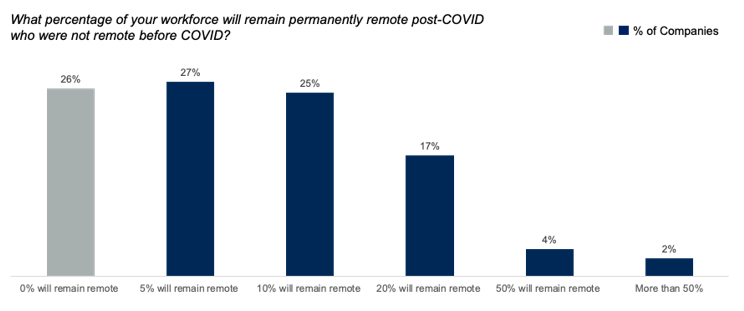In recent months, some people may have felt the joys and sorrows of working at home, some may feel their work becoming more effective, more healthy, less stressful, but some may felt increased workload, long working hours, and had too many meetings. However, despite every challenge, to be honest, most people liked it and never want to go back.
With all modern tools such as communication platforms and web conferencing, people could enjoy by having less stress from a long commute, traffic jam, on-site client meetings, etc. People may have realized that there is not necessary to go to the office every day and might have found their healthy work-life balance as they walk through it.

Having less commute, more productive, clean air every day, lots of money-saving, less sickness, and having more time with family might be the reasons why people unwilling to go back to their office. These also could be the reasons why the Japanese want to continue telecommuting after the pandemic.
How interesting that the suicide rate in Japan recently drops with the biggest drop in five years. Here in Indonesia, surprisingly, work from home could increase the birth rate because birth-control services have been pushed aside in exchange to focus on corona patients.

Telecommuting indirectly will affect public transportation. Less commuter means a drop in fare revenues for operators. They had to adjust fares for the longevity of public transports. As you guess, the fare cost would become more expensive than usual.
Telecommuting also makes the company recruit people outside their region and moving some of its workers to a cheaper location. Workers are willing to take slightly less pay to work in many low-cost cities. According to a Gartner survey, 74% of CFOs say they expect to move previously on-site employees to permanently remote positions Post-COVID 19 as it cost-saving for the company.

The possibility of telecommuting isn’t available to everyone. It is common among white-collar office workers but almost impossible for people who work in manufacturing, transportation, a restaurant server, personal trainer, emergency response, health workers, store clerks, or any jobs that are incompatible with remote work.

They may be laid off temporarily or permanently, and that seems unfair for low-income workers. If all the white-collar jobs relocated, the people who keep the office running, such as maintenance, security, to cleaners, could all find their jobs disappearing.
When telecommuting becoming a new norm, the government should take this as a serious matter to solve inequality among workers. Governments could also consider increasing the wages of many workers who work on the front line, subsidizing organizations that offer remote work options, for example, by helping to provide home computers and other equipment for workers. Last but not least, high-speed internet must also be feasible in any remote areas. There are so many countries that actually wasn’t ready for this kind of norm.


